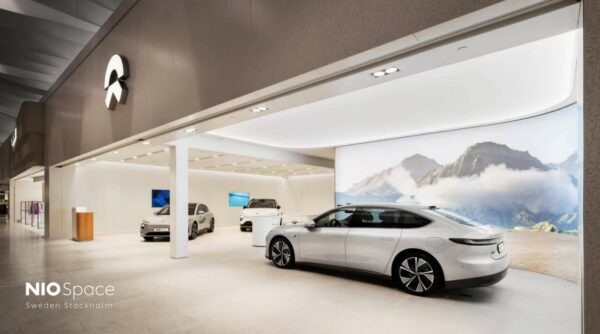Nio CEO William Li (Li Bin) says that Tesla can not dictate the prices of EVs in China. The automaker is not going to take part in the price war. In January, Tesla made headlines by cutting the prices of some of its most popular models, such as the Model 3 and Model Y, by as much as $7,000. This move shook the electric vehicle industry, prompting many competitors to follow suit and reduce their prices in an attempt to remain competitive.

Tesla made headlines in January when it reduced prices on some of its most popular models, such as the Model 3 and Model Y, by up to $7,000. This move had a negative spillover effect on other Chinese EV brands, causing significant order cancellations for some, according to MoCiti analyst Jeff Chung. Following Tesla’s lead, over 40% of EV and ICE brands, including BYD, have also offered discounts or subsidies since then. XPeng, another EV startup, followed suit with its round of price cuts, offering discounts of up to $5,300 on its most popular models, suggesting softening demand.
However, unlike its peers, Shanghai-based EV maker NIO has decided not to participate in the EV price wars. CEO Li Bin stated at a recent industry conference that blindly cutting prices would result in the ruthless competition in China. Furthermore, NIO’s gross margins are currently too low as they scale production, making it difficult to take part in price reductions.
Other markets
According to Li, the Tesla “Model 3 and Model Y are less complex in functions and configurations compared to Chinese car brands, such as BYD, so it cuts prices to challenge its rivals.” He added, “Tesla can fix vehicle prices in the US with a market share of over 60 percent, but not in China, where it holds only about 7 percent.”
NIO concluded 2022 with back-to-back record quarters in Q3 and Q4. The NIO ET5, priced at over RMB 300,000, outperformed China’s most popular gas models, becoming the second best-selling model in China among all mid-size sedans in January. However, due to increasing lithium prices and vehicle upgrades, NIO’s gross margins declined from 18.9% in the previous year to 13.7% in Q4 of 2022. Despite this setback, CEO Li remains confident that the EV manufacturer will bounce back. He reiterated that NIO’s gross margins are expected to reach between 18% and 20% in Q4 of 2023 as the company scales its operations. Nio delivered 122,000 EVs last year, up 24% from 2021, with shipments rising over 20% in the first three months of 2022 year-over-year.
Meanwhile, in the US, Tesla does have pricing power. The EV leader released Q1 delivery and production numbers Monday, showing the company beat expectations by delivering a record 422,875 vehicles, further expanding the gap in the US EV industry.












